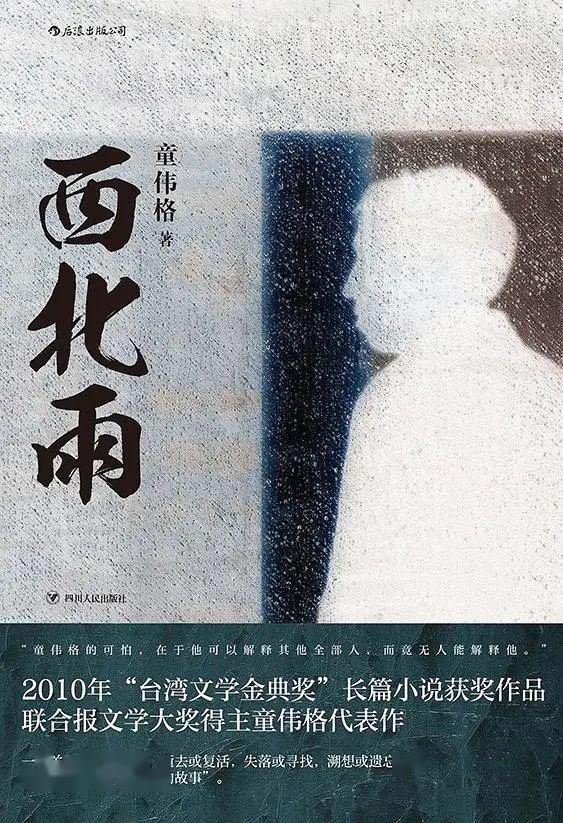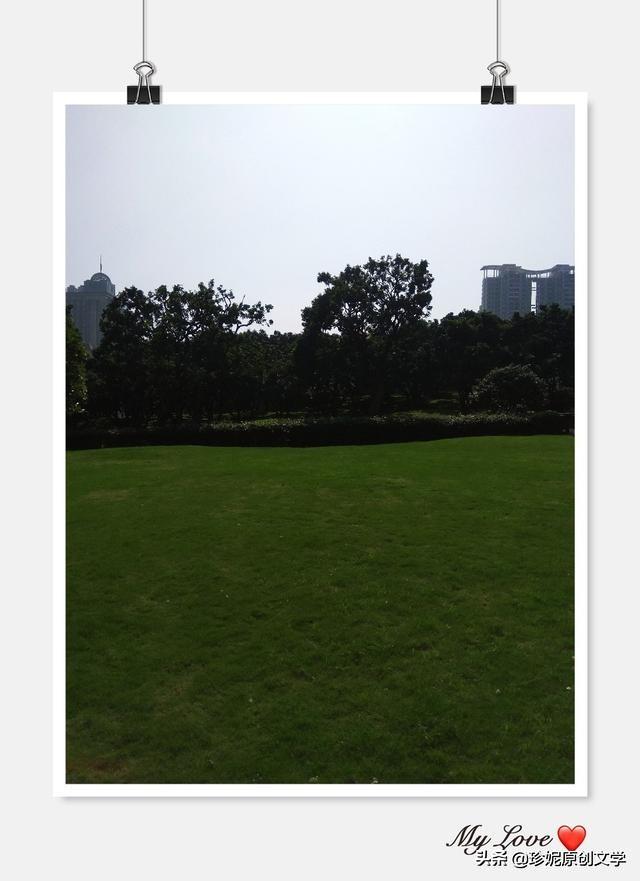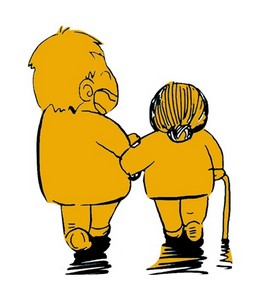大家好,我是M君,一个集经验
与才华于一身的良心小编。
上海外国语大学是我国首批MTI翻译专业硕士培养单位之一,因其优秀的师资和高大上的实践机会而名声远扬。那么,上外的师资到底有多牛呢?在上外读书能获得怎样的实践机会呢?M君引用知乎上关于上外MTI的介绍来回答--授课老师有AIIC会员、联合国资深口译专家以及翻译界资深教授与专家;上外是联合国合作备忘录签约高校之一,联合国环境署以及联合国粮农组织向笔译方向专业硕士开放机会,参与联合国文件的学习和翻译;联合国日内瓦办事处、维也纳办事处、欧盟委员会等机构向高翻学生提供口译实习项目。看了以上介绍,是不是觉得上外非常的高大上呢?那么,想要考进这所知名学府,就先来一起看看上外真题都考些什么吧!
2018上海外国语大学真题
357英语翻译基础
一、汉译英 (翻译划线部分,70分)
对中国90后,00后深入骨髓的剖析
现如今的家庭教育之难,难在什么地方?难在我们的教育有太多的悖论和问题需要面对。各位父母,我先问你们一个问题,你了解现在的孩子吗?我在这个问题上很有发言权,因为近20年来,我大概接触了8000个家庭案例。当今的孩子是怎么回事?当今的孩子是什么人?我们要从本质上来把握。假如我们不能从本质上来把握,学校教育也好,家庭教育也好,都不会在点子上。
从1993年以后孩子们就开始不一样了。为什么这么说呢?理由是1993年中国取缔了粮票,这件事情年纪大的是不是还记得?在中国这样一个国家里面,取缔了粮票意味着什么?我们吃饭不愁了。当一个民族吃饭不愁,尤其是到我们这样的民族吃饭不愁的时候,我们会愁什么呢?我们的需要开始变得不一样了,人对人的需要不一样了,家长对孩子的需要不一样了,社会对人的需要不一样,人对社会的需要不一样了。
我们来看1993年以后的人的基本特征,首先,他们都是独套公寓里的独子。独套公寓里的独子有什么样的人生感受呢?你可以去试试,到春天的时候,买一只刚刚生出来的小鸡,养着它,给它好吃好喝,你看看是不是两个礼拜以后小鸡就死掉了,因为小鸡也会孤独。现在的孩子带着天生的孤独感来到这个世界。那么孤独会有哪些麻烦?一,人一孤独,无端伤感,莫名其妙流眼泪;二,人一孤独,思考力就变得非常强,所以麻烦就来了,既不思考吃,又不思考穿,他就过早地思考了一个终极问题,最高哲学问题,“我存在有什么意义?”我们现在的孩子,连四岁的孩子就会在那里发呆了,你不知道他小脑袋里想什么。一旦人有这种问题,痛苦就伴随着他了。所以我们教育面对的问题是我们得知道自己的子女是什么人,才可以有方向。
第一,当今的孩子背负着沉重的情感负担
回想我们小时候,大部分人都生活在多子女家庭,父母很难投入过多的关注在某一个孩子身上。但是现在的孩子是什么样?上海这样的城市里,一个孩子来到这个世界上,就有六个人围着他,这六个人会把最好的付出给他。那么六个人爱一个孩子,你能体会到这个孩子的感受吗?你知道这个孩子的内心世界吗?他内心里面的苦闷你知道吗?其实人都有一种本能,谁对自己好,他就要报恩。我看到一个四岁的孩子跟奶奶说,奶奶,我长大后赚钱给你用,是因为他觉得奶奶对他太好了。可是等到十几岁他就搞清楚了,他报不了这个恩,为什么?因为这些大人又不会要他的钱来回报,他们要的是孩子去读名牌大学。可名牌大学在中国就这么几所,凭什么就你们家孩子去呢?
每年都有来自全国各地的高三的学生来找我咨询,他们所有的症状都是一样的:到了高三不投入学习,整天看手机,整天看小说。你问他想不想考大学?他回答,想,还要考好的。那为什么不投入呢?因为他们焦虑不堪。我只要说一句话他们就会淌眼泪,我说:“你可能考不到你觉得理想的大学,然后你会觉得实在对不起你的家长,他们对你太好了,是不是?”孩子们一听眼泪就淌下来。
孩子们太可怜了。我跟这些孩子说:“谁告诉你,你家长的幸福要你来负责任?孩子们,这个世界上没有一个人可以对另外一个人的幸福负责任。比如说两个人谈恋爱,一个男的对女的说‘嫁给我吧,我会给你一生一世的幸福’,结果没有三天就吵翻天了。孩子们,你记住,幸福是自己的主观人生体验。”
有一个妈妈,她培育了一个博士儿子,这个博士后来做了外交官,谁都羡慕这个妈妈,但是我们看她在干吗?天天在吃抗抑郁症的药;还有一个妈妈,她的儿子只不过是个普通工人,但是我们看到这个妈妈天天在乐呵呵地搓麻将。所以,幸福不是别人能给的,而是自己的主观体验。父母们要告诉孩子不要背这个包袱,轻装往前走,这个才是给孩子正能量。我讲一句贴心的话,我们把孩子带到这个世界上来,你要记住,不是他要来的,如果他要选择未必会选你,你是单向选择。我跟我儿子经常说的话是,“儿子,咱们母子一场,彼此不要嫌弃,你不嫌我,我不嫌你。”孩子没有这种重担,他才能轻装往前走,他才不会有考试焦虑。现在咱们国家有多少学生因为在临考前焦虑不堪,学习成绩才没有达到应该有的目标呀!
我们能看到现在的孩子有空前的学业压力,这只是显性的,而隐性的东西是孩子们整天跟焦虑高危人群在一起,这些人是孩子的父母、老师。你想想看,如果孩子在学校、在家里都要面对一群焦虑的人,人人对孩子拉橡皮筋,老师在学校里不停强调考试、学习;孩子回到家,家长也在强调考试、学习,那孩子可能就完了。跟焦虑的人在一起,会疲惫不堪,我们孩子所遇到的压力是全世界没有的。美国的学校不应试吗?也应试的,人家的学习任务也很重,可是人家的老师和家长不是我们这样的内心世界,我们(父母)自己太脆弱、不够强大。
第二,当今的孩子对话语权要求很高
现在孩子的第二个特征是对话语权要求非常高。这绝对是一个很特殊的现象,在中国几千年来是没有的。我有时候在思考,独生子女政策虽然有很多弊端,但是它会推动民主进程。为什么呢?首先,人的环境不一样。我们小时候被教育成“大人说话,小孩别插嘴”,我们认为这是天经地义的。现在孩子的生活是这样的,他在家里没有兄弟姐妹,直接跟大人对话,为什么你说话我不可以说话呢?
反过来看我们现在的学校教育者,还是秉承老一套。我们经常可以看到有的中学生被老师教育的时候,老师在训他,这个中学生就这样子,“你讲好了。差不多了讲好了吧?我可以进教室了吧?”他根本不会听你讲的。为什么?因为你不了解他话语权要求很高,你没有给他平等的对话。这也就是我们职场上马上要面对的93年以后的人。曾经有个老总找我,说他有一个名牌大学的实习生,这个实习生在开会的时候负责做记录,会上老总发完言,实习生说:“我也来讲”,老总说:“怎么轮到你讲?”他说:“我为什么不可以讲?我也了解啊!”于是这个老总就看不懂了。我跟他说,你要看懂他们话语权要求很高,如果你不让他有话语的可能性,他就到网上去说,你堵不住他的。
所以各位,你想想看,有这种平等话语权要求的民族,它怎么不是进步的呢?这是对我们几千年文化的一种挑战,你要面对的是我们的文化怎么来衔接,只有把它衔接好了以后,孩子才能够平稳地过渡,而不受到他前代人的压制,这是我们所遇到的问题。
第三,当今的孩子知识面宽广
各位在座的老师你不要生气,现在的孩子他未必是要到你这里来接受知识的,好多课都有光盘,他可以买来光盘自己看,而且都是名师讲的。现在的老师没有权威性,不像我们小时候,家里如果没有一本书,老师就是万宝全书,现在没有这样的老师。你也别指望你做这样的老师,或者说你可能得不到这样老师的感受。老师不理解这点就会打击学生,就否定现在的学生不如过去的学生。其实这就是时代的特征,跟不上的话,那是老师的问题。
在上海,有的孩子读初中的时候,已经走过半个地球了。老师在教室里面讲加拿大,学生说,“我在加拿大待过很长时间,老师你去过没有?”那么各位,这个书怎么教?我讲的都是非常实际的东西,教育要针对这些问题才能对未来的学生有用。
第四,当今的孩子都很善良
我们所有的1993年以后孩子的父母都会说他的孩子有这样那样的缺点,但是有一点,孩子是非常善良的。这就是中国的希望所在。理由如下:你在马路上,但凡看到一个乞丐,小孩子的脚步就有点迈不开了,他会拖住他妈妈尽量慢一点,实际上他想让他的妈妈捐点钱给这个乞丐。
小孩子很善良,原因是他有爱,他是浸润在爱当中长大的,他是在一个物质丰厚的时代里长大的,这样的人他一定善良,一定有爱心。爱心不是空穴来风,爱心是有条件的。现在的孩子具备了基础条件,所以他有同情心,他同情弱者,他爱别人。所以他的道德判断水平要比我们这代人高多了。
因为不同的身世,两代人的道德水准是不同的。所以我觉得非常有信心,后面的年轻人他们会越来越好,他们没有经过文化大革命,这一代孩子是有希望的。我们做家长的绝对不要辜负了他们,他们都是好孩子。
第五,当今都市孩子现实感非常弱
当今都市孩子现实感非常弱也是教育的结果。我们的孩子从小到大一切现实事务都被替代了,他们只知道好好学习,而我们的学校也没有提供给孩子处理事务的可能性,除了学习和补课没有其他活动。孩子在现代化的电脑世界里生活,现实感很弱。他们在虚拟的世界体会到真实感,在真实的世界里有虚拟感,这就是他们的特征。
比如说现在的中学生都在玩“手办”,人数大概比例是1/4。什么叫手办?“手办”就是以日本动漫为模板所制作的那些玩偶。他一个人跟这些玩偶在玩,有的时候玩偶还带一些色情,一个男孩子玩到他会爱上这个玩偶,然后就会在虚拟世界里捣鼓真实感。他们在网上交流,似乎这个玩偶是一个活人一样,最后他反而在真实世界里有虚拟感。两个人在网上聊好了以后准备见面,坐在一起,居然没有话,结果说,“我们网上去说吧,再见。”就到网上去说了。
有一个场景,有几个四、五岁的孩子,他们在一间没有大人的房间里。如果我们以常识来看,这个房间一定翻天了,地上都是水,弄得一塌糊涂。但现实是,这个房间门一打开,鸦雀无声,每个小孩都很安静,比老人院还宁静。这就是我们的孩子,他们“一不怕死,二就怕苦”。你跟孩子说不好好学习,将来会过什么什么苦日子,他会跟你说,“不可能的,如果到那天我会去死的。”人家连死都不怕还会怕什么?让我们怎么教育?
我不知道在座的有没有德育校长,如果有,请思考一下:我们现在中小学的德育活动应该做什么?因为孩子们现实感很弱,学校应该提供这种帮助,模拟法庭,模拟超市,模拟社区……去搞这些东西。有一个高中生跟我说,学校请来一个老掉牙的战争年代的老军人跟他们说,“我们战争年代如此艰苦,你们这些人到现在满脑子资产阶级思想,天天想着穿名牌”,那个高中生说,“老爷爷,你们革命不是为了我们穿名牌,是为了什么呀?”所以我们的德育教育真该动动脑筋了。孩子缺什么?你要给他什么?德育教育是育人,不是灌输某些东西,你要把他育成一个健康的人,不然一个没有现实感的人,到后来他的人格会有问题的。
曾经有一次有个重点中学高中的学生,她带了一个手机给我们看,她说,“老师,我们在玩这个东西”,我一看吓一跳,玩什么?一人割自己一刀,很好玩吗?这种行为我们怎么理解?这就是现实感缺乏的表现,他必须这样才能找到自己真实的存在。可惜,我们教育者全然不知。我们只知道他的成绩上去了还是下去了,而成绩下来有太多的因素。我们一定要了解我们的孩子,这些都是他的内心的一些痛苦点。
第六,当今的孩子对个性化生活要求非常高
我们来看他们还有一个特征,个性化要求非常高。我们小时候被教育成“你是大海里的一滴水,你是沙漠里的一粒沙”,现在的孩子是“我来过了,雁过留声,你们怎么可以不知道我来过?”他必须要展现个性。那么我们的教育允许吗?设计出来让他展现个性的平台了吗?我们班级的班会课是不是提供了呢?
有一个孩子跑到我这边,说他就是非要留长头发,穿花衣服,校服到门口就脱掉了,结果教导主任跟他说,要不剪头发就不要来。后来我打电话给他班主任,我说,“你知道吗?这个孩子的动漫知识,我连做他的小学生都不配。你把一节班会课给他,让他展现一下做好的PPT,我相信他从此就会改变。”
这个是我们现在孩子的又一个特征所在。那么各位,如果你要压抑他,他就抗争。抗争的途径方法是不一样的,有的孩子跟你打,我们叫逆反。为什么逆反?逆反是因为你不允许他长大。逆反有“硬抗”这样的形式,就是你说东他一定要说西,你说要好好读书考高中,他就跟你说要考职业学校。那么“硬抗”还好一点,如果“软抗”就麻烦了。如果老师、家长“强大无比”,是“不可战胜的”,孩子反抗的能量应付全部转移到里面,结果各类精神问题都出来了,导致现在15岁以后的孩子,神经症高发。各位注意,我们培养孩子健康是很要紧的,所以要充分满足他的个性展现,我们的学校德育活动要有这样的意识。
第七,当今的孩子活在“第三只笼子”里
最后我想总结的是,现在的孩子是活在“第三只笼子”里的。假设,我们有这样一个笼子,让一个老鼠在笼子里,笼子外面装一个门,如果老鼠不小心踩了一下这个门,门打开以后有一个食物会进来,这个老鼠踩一下,食物就进来,踩一下,食物就进来,老鼠会怎么做呢?会一直踩。如果第二只笼子是这样的,老鼠踩一下,电击一下,踩一下,电击一下,以老鼠的智力会怎么做呢?不踩了。如果“第三只笼子”我们是这样设计的,它踩一下是食物,再踩一下是电击。
二、英译汉(翻译划线部分,80分)
Stress really is killing us
By Daniel Keating
Updated 2123 GMT (0523 HKT) April 2, 2017
Daniel Keating is a professor of psychology at the University of Michigan and author of "Born Anxious: The Lifelong Impact of Early Life Adversity -- and How to Break the Cycle," due to be published in April from St. Martin's Press. The opinions expressed in this commentary are his own.
(CNN)There are new clues that the high levels of stress many people endure every day are taking a deadly toll.
White, working-class Americans are dying in middle age at a rapidly increasing pace, reversing a long-standing trend toward greater life expectancy across all races and social classes, according to a new report from economists Anne Case and Angus Deaton.
Much of this alarming trend comes from "deaths of despai原由网r," especially opioid addictions and overdoses, suicide, and alcohol-related diseases. To stem this epidemic, they argue that we need to understand the underlying reasons why this is happening. Case and Deaton make a plausible case that "slow moving and cumulative" social forces -- lack of labor market opportunities and fraying of the accustomed social fabric -- are key explanations. They reject arguments that attribute this trend to income alone or to a decline in virtue.
But an even more basic cause lies hidden at the intersection of psychology and biology -- a widespread stress epidemic that is affecting this group dramatically at the present but threatens all of us unless we soon understand the source of this trend and take steps to address it.
Stress-related disorders and diseases have been on the rise in the whole population for decades, according to data from the Centers for Disease Control and Prevention, including those leading to these deaths of despair, but also to heart disease, obesity, and diabetes.
National surveys by the American Psychological Association that also capture how stressed, anxious and overwhelmed we feel show a similar increasing pattern. And it shows up in our bodies, even before we get sick or start down the many roads to self-harm.
A recent study by the Hamilton Project looked at the "physiological stress load" in the US using biological markers tied to cardiovascular, kidney and liver function to create a stress load index. This physical stress load, a precursor to many diseases, has increased in striking fashion since the late 1970s, and it is getting worse as each new age group enters adulthood.
We should see this increase in mortality for what it is -- a leading indicator of what could be in store for many of us. What social forces are producing the broader stress epidemic, and how do they "get under the skin" to cause long-term damage? One major clue comes from a closer look at the stress load index.
It has increased for everyone, but with marked inequality -- it has risen more sharply for those with fewer social and economic resources but also more for the middle class compared to the well off. There is a clear line that connects increasing inequality in income and opportunities, to increases in stress and mortality that hits some groups earlier than others.
A central biological pathway is from excess cortisol -- the fight-or-flight hormone -- that characterizes being over-stressed for long periods of time. This "stress dysregulation" leads to risky health decisions, like addiction or overeating, and directly to many health pro原由网blems linked to excess cortisol.
Why are white, working-class Americans showing the earliest effects? Surely African-Americans and Hispanics have been experiencing inequality at equal or higher levels over these same decades. The key lies in different starting points in perceptions of control -- stress is largely a psychosocial phenomenon, though, of course, material deprivation also plays a role.
Minorities have gained some ground materially, in relative terms, over recent decades, but they also did not start with an assumption of being in control in the wider society. Losing a sense of control that you believed you had, whether real or not, justified or not, creates stressful dislocations.
We have seen this pattern before. In the disintegration of the Soviet Union in the 1990s, the group that saw itself as having substantial control -- middle-aged Russian men in particular -- experienced a similar loss of control, economically and in terms of cultural identity as the "socialist vanguard." They also died younger, suffering dramatic increases in early mortality.
If we understand what is actually happening -- socially, psychologically and biologically -- we can see that this effect is not going to be limited to just one group in the future. My colleagues and I have reported a pattern of increasing inequality being tied to worsening population outcomes -- not for mortality, but for the health, achievement and social engagement of adolescents in rich Western countries. But what we also found was that this was not inevitable.
Countries (Austria, Denmark, France, Sweden and others) that controlled income inequality and maintained investments in human development -- such as early childhood and parenting support, education, and social safety nets in health care and unemployment -- did not experience these increasing problems in adolescent and youth development.
Slow-moving and cumulative social forces "get under the skin" early in life and can show up decades later in morbidity and mortality. The risk is magnified in light of very recent research showing that high levels of stress experienced by expectant mothers or by babies can make fundamental biological changes in infancy -- through what are known as epigenetic changes, which alter how genes work -- that can endure over a lifetime.
This burden of stress dysregulation in young Americans from early life adversity amplifies the stress epidemic by making more of us vulnerable, and by increasing the total amount of ambient stress we all experience everyday in our schools, our workplaces, our social media, on our highways, in our malls -- in effect, throughout our communities.
Increasing inequality and decreasing investment in human development place all of us at risk -- a stressful recognition itself in the current political environment where there is the potential for going even further in the risky direction. Resisting these trends is essential to health, because the consequences will show up for all of us for decades to come.
448 汉语百科知识与写作
一、百科题简答论述题100分
1. 四大名著选一篇,介绍作者,写作背景,意义。30分
2. 几大工业革命的意义和简介。30分
3.一带一路对于中国和世界的意义。40分
二、写作50分
键盘打字能否取代书写的意义,800字议论文。
211翻译硕士英语
阅读一篇(哲学类,5页长度,四个问题,40分)
题目为:Barney's case for the history of philosophy
内容:主要讲的是两个小伙伴的paper,关于philosophical process,最后author评价了一下她俩的paper做得如何。
问题:
1. What are the reasons Barney cite for the study of history by three groups of people?
2. According to the passage, what are Martin Lin's interpretation about philosophers?
3. How does the author comment on the men's innate thirst for knowledge?
4. Sum up how the author writes about Barney and Martin Lin's discussion on philosophical progress.
作文 (800 words,60分)
Digital Humanities in the New Era.
2017上海外国语大学真题
357英语翻译基础
一、汉译英 (翻译部分,以下为全文,70分)
2016年11月5日,上海外国语大学首届“中国学的国际对话:方法与体系”国际研讨会在虹口校区高翻学院同传室拉开帷幕,本次学术研讨会由上外主办,中国学研究所协同国际关系与公共事务学院、高级翻译学院联合承办,欧盟研究中心、俄罗斯研究中心、英国研究中心、中日韩合作研究中心以及马克思主义学院共同参与。上外党办、校办、宣传部等部门对本次会议给予了大力支持。
本次研讨会是中国学研究所成立以来,在学科体系日臻完善、教学有条不紊推进的同时,于科研领域的初次探索,旨在辩明中国学的方法与体系,探讨中国的发展规律和特点以及中国在世界上的地位与作用,从而为“中国的中国学”发展贡献思维火花。根据校领导的指示,中国学研究所协同校内多研究中心邀请到来自5大洲10个国家21所学校的近50位学者参会,共同讨论“中国学的概念与方法”、“中国学的体系与学科”、“传统汉学与当代中国学的比较”以及“中国学发展趋势展望”四大议题。会议吸引到来自中国学、马克思主义等专业的40余位硕博士生参与。
开幕式由中国学研究所所长武心波教授主持,上海社会科学院副院长谢京辉教授、上外副校长冯庆华教授致开幕辞。冯校长指出伴随中国学学科影响力的不断扩大,上外正结合自身优势打造独具特色的中国学;在未来,上外将不断加大对中国学的支持力度,使得中国学研究更加成熟。谢院长表示上海外国语大学是国家级学术交流平台——世界中国学论坛——在中国学领域内紧密合作的兄弟单位,上海社科院与上外“在举办论坛到研究生培养方面的合作空间将不断扩大。”
开幕式第二项,冯庆华副校长为埃及艾因夏姆斯大学穆赫森法尔贾尼教授、西交利物浦大学大卫古德曼教授等7位学者颁发“上海外国语大学中国学研究所海外学术顾问”聘书。藉此加强上外与国外一流中国学研究机构、资深中国学学者的联系,促成本土中国学与海外中国学的密切互动。
开幕式第三项,上海国际问题研究院学术委员会主任、研究员,上海市人民政府参事杨洁勉教授发表了题为“Systemic Designing and Methodological Exploring: My Understanding of China Study in China”的主旨演讲。杨教授在发言中提到尽管在很长的时间里中国都在做关于自身的研究,但真正将学科体系框架构建起来,仍需付出巨大努力。如何通过国际对话而非仅仅内部交流表达中国的思维与认知是亟待我们去变革的。
主旨演讲之后,与会代表进行了集体合影并茶歇。上外俄罗斯研究中心主任汪宁教授主持了第一场讨论,复旦大学中国研究院范勇鹏副教授、上海社科院助理研究员潘玮琳博士、日本爱知大学高桥五郎教授、俄罗斯莫斯科友谊大学尤里教授以及韩国高丽大学李正男教授围绕“中国学概念、方法与思潮”展开辩论。
第二议题由上外欧盟研究中心副主任戴启秀教授主持,四川大学高中伟教授、北京外国语大学管永前副教授、上外武心波教授与意大利马切拉塔大学青年讲师安博璐博士、西交利物浦大学中国学系主任古德曼教授,作为各自大学中国学项目的负责人与建设者共同交流了办学经验,探讨如何进行“中国学”专业人才培养、完善学科体系。
上外英国中心副主任高健副教授主持了第三议题,在这一场次上海社科院历史所周武研究员、复旦大学中华文明国际研究中心副主任李天纲教授、华东师范大学对外汉语学院顾伟列教授,对话埃及艾因夏姆斯大学穆赫辛教授、澳大利亚昆士兰大学李志刚教授、意大利国际语言与传媒大学讲师斐德博士。纵论传统汉学与当代中国学,跨越历史、宗教、文学等诸多领域。
在“中国学的发展趋势展望”单元,上外马克思主义学院院长赵鸣歧教授担任了会议主持,华东师范大学历史系教授刘昶、讲师张昕,武汉大学政治学与公共管理学院副教授刘杉、上外马克思主义学院讲师张放与美国新罕布什尔大学政治系副教授李道明、加拿大多伦多大学博士候选人阎述良就中国道路、中国视角、国家资本主义等问题展开交锋。
经过一天激烈的头脑风暴,上外国际关系与公共事务学院副院长刘宏松教授做了大会总结;上外科研处处长、中日韩合作研究中心主任王有勇教授向与会代表致感谢辞。大会宴请由冯庆华副校长主持。值得一提的是本次会议全程配备同声传译,同传团队由上外高翻院长张爱玲教授亲自挂帅,上外高翻过硬的专业技能与先进的同传设备使得中外学者无障碍探讨畅论中国成为可能。
在校领导的高度重视、校内各部门的积极联动下,上外首届围绕“中国学”展开的国际研讨会取得圆满成功。思维碰撞、学术争鸣,本次会议为国内外19所高校与科研院所提供了共话中国的平台,为国内外长期中国学合作搭建了平台,得到与会各方的一致认可与赞誉。
二、英译汉(翻译部分,以下为全文,80分)
The whole course of man's life up to adolescence is a period of weakness; yet there comes a time during these early years when the child's strength overtakes the demands upon it, when the growing creature, though absolutely weak, is relatively strong. His needs are not fully developed and his present strength is more than enough for them. He would be a very feeble man, but he is a strong child.
What is the cause of man's weakness? It is to be found in the disproportion between his strength and his desires. It is our passions that make us weak, for our natural strength is not enough for their satisfaction. To limit our desires comes to the same thing, therefore, as to increase our strength. When we can do more than we want, we have strength enough and to spare, we are really strong. This is the third stage of childhood, the stage with which I am about to deal. I still speak of childhood for want of a better word; for our scholar is approaching adolescence, though he has not yet reached the age of puberty.
About twelve or thirteen the child's strength increases far more rapidly than his needs. The strongest and fiercest of the passions is still unknown, his physical development is still imperfect and seems to await the call of the will. He is scarcely aware of extremes of heat and cold and braves them with impunity. He needs no coat, his blood is warm; no spices, hunger is his sauce, no food comes amiss at this age; if he is sleepy he stretches himself on the ground and goes to sleep; he finds all he needs within his reach; he is not tormented by any imaginary wants; he cares nothing what others think; his desires are not beyond his grasp; not only is he self-sufficing, but for the first and last time in his life he has more strength than he needs.
I know beforehand what you will say. You will not assert that the child has more needs than I attribute to him, but you will deny his strength. You forget that I am speaking of my own pupil, not of those puppets who walk with difficulty from one room to another, who toil indoors and carry bundles of paper. Manly strength, you say, appears only with manhood; the vital spirits, distilled in their proper vessels and spreading through the whole body, can alone make the muscles firm, sensitive, tense, and springy, can alone cause real strength. This is the philosophy of the study; I appeal to that of experience. In the country districts, I see big lads hoeing, digging, guiding the plough, filling the wine-cask, driving the cart, like their fathers; you would take them for grown men if their voices did not betray them. Even in our towns, iron-workers', tool makers', and blacksmiths' lads are almost as strong as their masters and would be scarcely less skilful had their training begun earlier. If there is a difference, and I do not deny that there is, it is, I repeat, much less than the difference between the stormy passions of the man and the few wants of the child. Moreover, it is not merely a question of bodily strength, but more especially of strength of mind, which reinforces and directs the bodily strength.
This interval in which the strength of the individual is in excess of his wants is, as I have said, relatively though not absolutely the time of greatest strength. It is the most precious time in his life; it comes but once; it is very short, all too short, as you will see when you consider the importance of using it aright.
He has, therefore, a surplus of strength and capacity which he will never have again. What use shall he make of it? He will strive to use it in tasks which will help at need. He will, so to speak, cast his present surplus into the storehouse of the future; the vigorous child will make provision for the feeble man; but he will not store his goods where thieves may break in, nor in barns which are not his own. To store them aright, they must be in the hands and the head, they must be stored within himself. This is the time for work, instruction, and inquiry. And note that this is no arbitrary choice of mine, it is the way of nature herself.
Human intelligence is finite, and not only can no man know everything, he cannot even acquire all the scanty knowledge of others. Since the contrary of every false proposition is a truth, there are as many truths as falsehoods. We must, therefore, choose what to teach as well as when to teach it. Some of the information within our reach is false, some is useless, some merely serves to puff up its possessor. The small store which really contributes to our welfare alone deserves the study of a wise man, and therefore of a child whom one would have wise. He must know not merely what is, but what is useful.
From this small stock we must also deduct those truths which require a full grown mind for their understanding, those which suppose a knowledge of man's relations to his fellow-men--a knowledge which no child can acquire; these things, although in themselves true, lead an inexperienced mind into mistakes with regard to other matters.
We are now confined to a circle, small indeed compared with the whole of human thought, but this circle is still a vast sphere when measured by the child's mind. Dark places of the human understanding, what rash hand shall dare to raise your veil? What pitfalls does our so-called science prepare for the miserable child. Would you guide him along this dangerous path and draw the veil from the face of nature? Stay your hand. First make sure that neither he nor you will become dizzy. Beware of the specious charms of error and the intoxicating fumes of pride. Keep this truth ever before you--Ignorance never did any one any harm, error alone is fatal, and we do not lose our way through ignorance but through self-confidence.
His progress in geometry may serve as a test and a true measure of the growth of his intelligence, but as soon as he can distinguish between what is useful and what is useless, much skill and discretion are required to lead him towards theoretical studies. For example, would you have him find a mean proportional between two lines, contrive that he should require to find a square equal to a given rectangle; if two mean proportionals are required, you must first contrive to interest him in the doubling of the cube. See how we are gradually approaching the moral ideas which distinguish between good and evil. Hitherto we have known no law but necessity, now we are considering what is useful; we shall soon come to what is fitting and right.
Man's diverse powers are stirred by the same instinct. The bodily activity, which seeks an outlet for its energies, is succeeded by the mental activity which seeks for knowledge. Children are first restless, then curious; and this c//www.58yuanyou.comuriosity, rightly directed, is the means of development for the age with which we are dealing. Always distinguish between natural and acquired tendencies. There is a zeal for learning which has no other foundation than a wish to appear learned, and there is another which springs from man's natural curiosity about all things far or near which may affect himself. The innate desire for comfort and the impossibility of its complete satisfaction impel him to the endless search for fresh means of contributing to its satisfaction. This is the first principle of curiosity; a principle natural to the human heart, though its growth is proportional to the development of our feeling and knowledge. If a man of science were left on a desert island with his books and instruments and knowing that he must spend the rest of his life there, he would scarcely trouble himself about the solar system, the laws of attraction, or the differential calculus. He might never even open a book again; but he would never rest till he had explored the furthest corner of his island, however large it might be. Let us therefore omit from our early studies such knowledge as has no natural attraction for us, and confine ourselves to such things as instinct impels us to study.
448 汉语百科知识与写作
一、百科题简答论述题80分
1.写出中国夏朝以来的主要朝代,挑出一个分析兴亡原因。
2.选一首唐诗或宋词,写出原文并翻译成白话文。
3.评论“罢黜百家,独尊儒术”的意义和影响。
4.评价中国载人航天技术的成就和意义。
二、写作70分
我眼中的千禧一代,800-1000字。
211翻译硕士英语
阅读一篇(5页半长度,四个问题,60分)
题目为:A Safe Heaven in a Heartless World
问题:
1. According to the author, was Gould right or wrong in her account of Hegel with regard to liberating women by paying her proportionately? Cite details in the passage to support your answer.
2. Does the author agree that marriages should be contractual? How do you draw your conclusion?
3. What does the author think of Hegel?
4. How does the author find Gould?
作文 (800-1000words,40分)
In what ways did the ancient Greek political ideas influence the current western countries? Broad reflections would suffice, so long as properly justified.
2016上海外国语大学真题
357英语翻译基础
一、汉译英 70分
恐怖主义是现代人类社会之癌
巴黎连环恐怖袭击事件震惊全球,相信全人类有基本正义感的力量都会予以谴责。
发生在当地时间13日晚的恐怖袭击显然经过了认真策划和组织,巴黎有剧院、足球场和一些餐馆同时成为袭击目标。这是西方世界近年遭遇的最严重恐怖袭击,在全球范围内,它也是一段时间以来发生在大城市最具组织性和颇具杀伤力规模的恐袭事件。
“911”事件以来,恐怖主义消耗了人类的大量精力,发达社会包括很多发展中社会的反恐成本急剧增加。然而恐怖主义像癌细胞一样继续扩散,“基地”组织被重创,更凶残的极端组织 IS 却“应运而生”。西方世界陷入了隔一段时间就发生一起轰动性恐袭的节奏,在一些动荡的发展中国家,恐怖袭击成为极端反政府力量的日常斗争手段。中国新疆也有极少数年轻人受极端主义蛊惑,走上暴力恐怖主义道路,使得新疆成为世界反恐的前沿之一。
大中东的动荡和贫困国家仍是恐怖主义最活跃地区,也是它的最大扩散源。中东向外输送的难民以及经济移民把一些深层问题带进欧美社会,欧美一方面需要新移民,它们的社会结构已不可能回到较为单一的过去。但同时发达社会又对来自第三世界的新移民产生一些抵触情绪,甚至有反移民的激进表现上演。
欧美国家不断有激进分子跑到中东参加“圣战”,他们有些后来又回到欧美,成为危险的恐怖主义“病毒携带者”。欧美的恐袭活动很多时候已不像十几年前那样全都由中东恐怖组织策划并实施,恐袭者和恐袭组织的身份、性质趋于复杂化,防范起来更加困难。
由于全球化不可逆,社会的开放、自由也很难收紧,现代社会的运行方式与反恐机制天然地南辕北辙。一个安全部门认定的“高危”分子可以是完全自由的,时代保护了他们的权利,hcSdbrWMn也意味着社会为防范恐袭发生不断增加巨额成本。
各国政府都在反恐问题上严防死守,但各国的态度加在一起却构成了对恐怖主义模糊且充满争议的认识。地缘政治和意识形态在这当中扮演了离间各国的角色,有些国家只反对针对本国及盟国的恐怖主义,却对在竞争国家发生的恐怖主义态度暧昧,对恐怖分子的经济或社会处境公开表示同情。
IS 能在中东快速崛起,这当中被普遍认为有美欧想利用它打击阿萨德政权的因素,美国在是否剿灭 IS 或投入多大力量打击它的问题上三心二意。
不难看出,恐怖主义只要善于利用大国的分歧,就不难找到有利于自己存活的事实上的国际空间。而现代社会的广泛自由又为它们间歇性实施突袭创造了条件。此外,恐怖主义会在一些国家里得到反社会极端主义的呼应,一些仇视社会的“独狼”也会造成类似恐袭的严重损失。
人类需要把恐怖主义作为现代社会的“癌症”进行长期、坚决的打击。随着战争爆发的几率越来越小,恐怖分子造成的爆炸声和枪声很可能将是现代社会最具挑战的暴力回响。
二、英译汉80分
Why the term 'sharing economy' needs to die
Alex Hern
The "sharing economy" is a meaningless term that was only coined in the first place because of the tech industry’s desire to pretend everything it does is new and groundbreaking.
Now, almost a decade after it started seeing use, it's worse than simply being meaningless: it's actively obfuscatory, lumping together a hugely disparate bunch of companies, many of which push the definition to its limits, and the biggest examples of which have nothing to do with "sharing" atall.
The term grew out of the open-source community, where coders contribute to programs released to the world free-of-charge. The push for a similar model to be applied to the real world dates back to the early 2000s, but it took the financial crisis for it to grow from a niche idea to one taken seriously.
By the 2010s, the focus had narrowed from a nebulous attempt to bring the open source ethos out of the coding world to a more specific look at how to use technology to enable more efficient use of scarce resources. At the same time, the buzzwords had also stabilised, with a number of academic-sounding terms such as "commons-based peer production" (as coined by NYU law professor Yochai Benkler) to two main contenders: "the sharing economy", and "collaborative consumption".
The time was ripe for both ideas to take off. With unemployment in the west still high, and ideas of "post-growth capitalism" floating in the ether, groups that could articulate an alternative view of the world were popular. And the archetypal collaborative consumption models were seemingly win-win. A typical analogy for the sort of model people wanted to build was focused on household tools: if you own a drill, you likely don’t use it 364 days of the year; why not let others use it in the meantime?
In its purest sense, that is the sharing economy. But it very quickly ran into an issue: while some people act out of altruism, most don’t. My drill is mine. Why should I share it with you?
Some sites, such as Freecycle, still focus on acting out of the goodness of one's heart, but the success stories of the sharing economy solved the problem by looking to the old economy. And so "sharing" became "renting". Even today, one report finds 20 companies in the sharing economy whose offering can be summed up as "you can borrow stuff you don't want to buy". Nine of them have a name beginning with "rent".
Once money started changing hands in earnest, business really started booming. In 2011, the same year Time magazine named the "sharing society" one of the Ten Ideas That Will Change The World, Air Bn B raised $120m in VC funding. The company was mentioned in Time's piece, which still emphasised the feel-good backdrop to the story: "There's a green element here, of course: sharing and renting more stuff means producing and wasting less stuff, which is good for the planet and even better for one’s self-image."
While renting out a spare room in a flat (or even renting out a flat) may be close enough to "sharing" to be hair-splitting, it's a different case for hiring a driver to take you across a city. And yet Uber is one of the most famous examples of the sharing economy in the world – and certainly the highest capitalised, worth well north of $50bn.
The company's defenders argue that it justifies that label because of the similarity to AirBnB: Uber drivers have an asset lying unused, which they want to monetise with the power of the internet. The difference, of course, is that an Uber driver's labour is an integral part of the whole shebang. You aren't renting their car: you're renting their car and them.
If that's still not clear-cut enough, consider Task Rabbit, the last member of the holy trinity of the Sharing Economy. The company allows customers to hire temporary labour to cook, clean, assemble furniture or queue for the latest i Phone. It's a far cry from "collaborative consumption".
Instead, the companies lumped together as examples of the sharing economy have come to be typified by something altogether different: a dependence on tenuous labour, particularly that provided by individuals working as third-party contractors rather than full employees.
For that reason, I've been using another term to describe these companies: "gig economy". It’s not as well-known as "sharing economy", which means it sounds weird to some ears ("do you mean Uber only hires musicians?"). But it emphasises the unifying aspect is short-term, tenuous "gigs" – often more than one juggled at the same time.
But there are other popular alternatives as well. In the US, "1099 economy" is often used, referring to the American tax code for independent contractors, while in the UK, similar emphasis is placed on "zero-hour contracts": terms of employment which provide no fixed hours and don't even guarantee work will be provided at all.
Are those terms better term than "gig economy"? Is there a better phrase still? Let me know in the comments below.
448 汉语百科知识与写作
一、填空。
1. 新文化运动的核心刊物是()。
2. 中国历史上由女真族建立的朝代(国)()和() 。
3. 编钟是一种()。
4. 唐代诗人杜牧在()中描述了秦王朝统治者大兴土木的情景。
5. 中国五岳是()、()、()、()、()。
6. 汉字历史悠原由网久,其主要构造方法象形、指事、假借、会意和()。
7. 被称作“元曲四大家”的元杂剧作者是()、()、()和()。
1. 满腹经纶
2. 卧薪尝胆
3. 白驹过隙
4. 暴殄天物
5. 首当其冲
坚持法治反腐,建设廉洁政治
法理昭彰,有腐必惩。
9月22日,济南市中级人民法院对薄熙来受贿、贪污、滥用职权案做出一审判决,判处无期徒刑,剥夺政治权利终身,并处没收个人全部财产。综观整个薄熙来案,从立案侦查、审查起诉、提起公诉到开庭审理,再到法院宣判,整个过程以事实为根据,以法律为准绳,彰显了法治精神和司法正义,表明了我们党和国家依法惩治腐败的坚决态度和坚定决心。
用法治思维和法治方式反对腐败,是我们党坚持倡导的反腐思路。薄熙来案的查处过程,始终都贯穿着依法反腐的基本理念。无论是依党纪国法的查办过程,还是对案件的依法指定管辖;无论是控辩双方充分质证、法院公开透明审理,还是依法作出一审判决,都始终运行在法治的轨道上,始终以法治精神为依归。正因如此,对薄熙来案的依法查处,得到广大干部群众的支持拥护。这同时也有力表明,坚持依法反腐,既体现一种政治文明,也凝聚
着普遍的社会共识。
律己廉为首,治国法为先。坚定不移惩治腐败,是我们党有力量的表现,也是全党同志和广大群众的共同愿望。对薄熙来的坚决依法惩处充分表明,党纪国法面前没有例外,不管涉及到谁,都要一查到底,都要依法严惩。实践证明,反腐败越坚决,坚持“老虎”“苍蝇”一起打,就越能发挥震慑力。当前,腐败现象依然多发,滋生腐败的土壤依然存在,反腐败斗争的形势依然严峻复杂,只有始终保持惩治腐败高压态势,坚持依纪依法严惩腐败,才能正党风、顺民意,才能聚党心、得民心。
党的十八大提出建设廉洁政治的重要任务,要求做到干部清正、政府清廉、政治清明。全党同志尤其是各级领导干部务必牢记,任何人都没有法律之外的绝对权力,任何人行使权力都必须为人民服务、对人民负责并自觉接受人民监督;务必坚定理想信念,强化宗旨意识,时刻警醒拒腐防变,带头遵纪守法,不断增强自我净化、自我完善、自我革新、自我提高能力;务必坚持廉洁自律,把反腐倡廉当做政治必修课来认真对待,守住做人、处事、用权、交友的底线,永葆共产党人清正廉洁的政治本色。
211翻译硕士英语
I.Cloze. Fill in each blank with a proper word.
The American century will survive the rise of China
By Joseph Nye
In 1941 Time editor Henry Luce proclaimed "the American century". Some now see this coming to an end (1) the nation’s economic and political decline. Many point to the example of US failure to convince its allies to stay out of the Asian Infrastructure Investment Bank, Beijing's rival to the World Bank; but this was (2) an example of a faulty decision than evidence of decline, which raises the question of what is the natural life cycle of a nation.
A century is generally the limit for a human organism but countries are social constructs. Rome did not collapse until more than three centuries after it reached its apogee of power in 117AD. After American independence in 1776 Horace Walpole, the British politician, lamented that his nation had been reduced to the level of Sardinia, just as Britain was about to enter the industrial revolution that (3) its second century as a global power.
Any effort at assessing American power in the coming decades should (4) how many earlier efforts have been wide of the mark. It is chastening to remember how wildly (5) US estimates of Soviet power in the 1970s and of Japanese power in the 1980s were. Today some see the Chinese as 10ft tall and proclaim this "the Chinese century".
China's size and relatively rapid economic growth will bring it closer to the US in terms of its power resources in the next few decades. But this does not necessarily mean it will surpass the US in military, economic and soft power. (6) China suffers no big domestic political setback, many projections are simple linear extrapolations of growth rates that are likely to slow in the future. (7), economic projections are one dimensional. They ignore US military and soft power advantages, such as the desire of students around the world to attend US universities. They also overlook China's geopolitical (8) in the Asian balance of power, compared with America's relations with Europe, Japan and India, which are likely to remain more favourable.
It is not impossible that a challenger such as China, Europe, Russia, India or Brazil will surpass the US in the first half of this century but it is but not likely. On the question of absolute rather than (9) American decline, the US faces serious problems in areas such as debt, secondary education, income in-equality and political gridlock but these are only part of the picture. On the positive side of the ledger are favourable trends in demography, technology and energy as well as abiding factors such as geography and entrepreneurial culture.The scenarios that could (10) decline include ones in which the US overreacts to terrorist attacks by turning inwards and thus cuts itself off from the strength it obtains from openness. Alternatively it could react by overcommitting itself, and wasting blood and treasure as it did in Vietnam and Iraq.
As an overall assessment, describing the 21st century as one of American decline is inaccurate and misleading. (11) the US has problems it is not in absolute decline, unlike ancient Rome, and it is likely to remain more powerful than any single state in coming decades. The real problem is not that it will be overtaken by China or another contender but rather that it faces a rise in the power resources of many others — both states and non-state actors such as transnational corporations, terrorist groups and cyber criminals. And it will face an increasing number of global problems that will (12) our ability to organise alliances and networks. (13) to the views of those who proclaim that this the Chinese century, we have not entered a post-American world. But the American century of the future will not look the same as in previous decades. The US (14) of the world economy will be smaller than it was in the middle of the past century. Furthermore, the complexity created by the rise of other countries, as well as the increased role of non-state actors, will make it harder for even America, the biggest power, to (15) influence and organise action. Entropy is a greater challenge than China. At the same time, even when the US had its greatest preponderance of power resources, it often failed to secure what it wanted. Those who argue that the disorder of today's world is much worse than in the past should remember a year such as 1956, when the US was unable to prevent Soviet repression of a revolt in Hungary; or the Suez invasion by our allies Britain, France and Israel. We must not view the past through rose-tinted glasses. Now, with slightly less preponderance and a much more complex world, the American century will continue for at least a few decades, but it will look very different from when Luce first articulated it.
II.Question.
(1) What aspects are often ignored by many people when accessing American power?
(2) Did Britain decline after the American independence in 1776?
(3) Please give an example of American decline.
(4)According to the author, what are the real problems that the US is now facing?
(5) What will be the future of an American century like?
III.Writing
Is damage to the environment an inevitable consequence of improving people’s standards of living? More than 400 words.
看完了上外近三年的真题后,M君发现这个学校的题型真的是“简单粗暴”。就翻译基础这门来说,一篇英译汉,一篇汉译英,两篇翻译篇幅长,分值大,让人感觉像是在考CATTI,想要考上外的小伙伴们可要把翻译的速度练起来。基础英语由一篇长阅读和一篇长作文组成,阅读篇幅长,带有四个主观题,分值较大,难度较高。百科知识则是由论述题和作文组成,论述题的难度不低,对于考生的理解能力和概括能力有一定的考验,对于考生的思维逻辑的考察比较明显;作文比较正常,为高考议论文形式,分值较高。


我只是一条分割线
这里有最新时事新闻,这里有最精选的复习备考资料,MTI备考,你想要的,M君都会有!M君带着最新最全的MTI备考资料,等着你哦!喜欢M君的话,请给M君的文章点赞分享,你们的支持,是M君更新最大的动力!
关注M君,定期更新,干货享不停!
喜欢M君,那就分享M君给身边的小伙伴吧,大家一起学习,共同备战MTI!
我是M君,一个集经验与才华于一身的良心小编。







